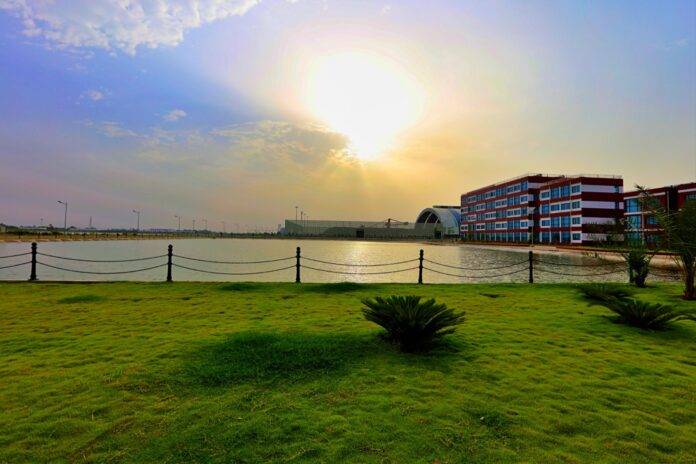ISLAMABAD, Apr 9 (APP): The 1320MW Sahiwal Power Plant, one of Pakistan’s largest coal-fired power stations, stands as a testament to the immense benefits that large-scale infrastructure projects can bring to local communities. Situated in the Sahiwal district of Punjab, the power plant has not only played a pivotal role in addressing the country’s electricity needs but also significantly contributed to the economic and social uplift of the surrounding area.
One of the most significant impacts of the Sahiwal Power Plant has been on local employment. During the construction phase, the project provided work to over 3,000 Pakistani workers. This large influx of local labor not only helped accelerate the plant’s development but also boosted the livelihoods of many families in the area. The employment created by the plant allowed workers to earn stable wages, which helped improve their standard of living and supported local businesses that benefited from the increased purchasing power. Furthermore, the skills and expertise gained by local workers during the construction phase have provided them with valuable experience that will serve them throughout their careers.
In addition to direct employment, the operational phase of the Sahiwal Coal Power Plant has contributed significantly to job creation. More than 180 highly skilled professionals, have been trained through the power plant’s ongoing initiatives and have not only helped in the efficient running of the plant but have also become valuable contributors to the local and national workforce, boosting Pakistan’s energy sector capabilities.
Beyond direct employment at the power plant, the Sahiwal Power Plant’s operations have also created numerous jobs in the surrounding area through third-party services and local businesses. The project has generated over 900 local employment opportunities, further contributing to the community’s economic prosperity. Additionally, more than 4,500 people in the surrounding community have benefited from the plant’s indirect job creation. Many of these individuals work for local businesses that supply goods and services to the plant, such as construction materials, equipment, and food supplies. As the plant continues to operate, the demand for these services ensures that local businesses thrive and contribute to the wider economy.
The sheer scale of job creation resulting from the power plant has made a significant difference in the livelihoods of people in the surrounding areas, reducing unemployment and providing steady income sources for families. This, in turn, has stimulated further development in local communities, including the expansion of local markets and improvements in the quality of life for the residents.
Sahiwal Power Plant has also made substantial investments in the infrastructure of the local area. Recognizing that robust infrastructure is essential for the success of any industrial project, the power plant has funded the construction of concrete roads and bridges, which have had a far-reaching impact on the community.
The Sahiwal Power Plant’s commitment to community development is not limited to providing jobs and infrastructure; it extends to the realm of education and skill development. The plant’s state-of-the-art training academy, which offers free technical education in fields such as welding, electrical work, and computer skills, is an example of this commitment.
Moreover, by increasing the availability of electricity in the region, the plant has played a crucial role in supporting industrial growth and economic stability in Punjab. This has resulted in a more vibrant local economy and enhanced the region’s prospects for future development. As the power plant continues to operate, it is expected to keep contributing to the community through new and innovative approaches, helping Sahiwal remain a center of sustainable development and prosperity.
The 1320MW Sahiwal Power Plant stands as a model for how large-scale infrastructure projects can generate a lasting positive impact on local communities, and the power plant continues to be a crucial driver of progress for both the region and the nation.

